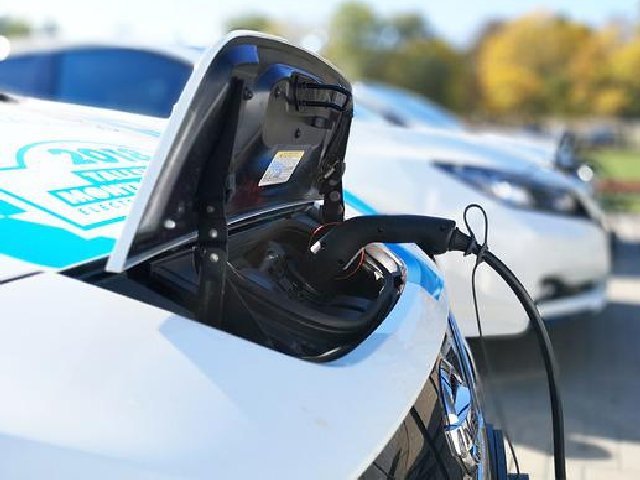EV chargers

What you need to know about EV chargers

What you need to know about EV chargers
Slowly but surely, more and more EV chargepoints can be found everywhere. The type of charger you use affects how quickly your battery is charged and how much it costs you. The goal is to reduce the charging time of EVs to be comparable to the refueling time of a fuel powered vehicle. This may lead to shorter battery lifetime though. The EV charger market is just getting started and the number of manufacturers and dealers is growing at an incredible pace.
You will also come across more and more charging management software options that make it easy to track, manage, and optimize EV charging. This software enables a business to earn revenues by charging fees. You probably have already seen charging stations popping up at local supermarkets, shopping malls, hotels, and so forth. But many types of business will add charging points for their employees, f.e. transport or taxi businesses.
WE ARE DEFINITELY ENTERING A NEW ERA!
On-board / Off-board charging
On-board charging means that the charging system with converter, etc., is included inside the vehicle itself, whereas off-board charging means that the charging system with converter, etc., is inside the charging station.
The different chargers
Rapid chargers (>50kw)
Rapid EV chargepoints can charge compatible batteries up to 80% in around 30 minutes or less. All rapid chargers have the charging cable tethered to the charger.
They can usually be found at service stations.
Fast chargers (7kw to 22kw)
Fast electric car chargers need between 1 and 5 hours to charge a compatible EV, depending on the size of the batteries and the speed of the charger.
They are also called destination chargers because they're mostly found in places like car parks, shopping centers, supermarkets, and tourist destinations where you would normally park your car at least for an hour.
7kw home chargers are popular as well since they provide quick charging at home.
Slow chargers (2.4kw to 6kw)
Slow chargers can be found in workplaces and homes but charging takes longer and can take more than 12 hours.
Smart chargers
What is a smart charger? A smart charger utilizes windows of low energy demand f.e. at night, keeping the cost to a minimum. Combining a smart charger with a variable energy tariff is definitely the most cost effective way to refill your electric vehicle’s battery.
An electric car charger installed at home
Of course it is most convenient to have a charge point at home. However, you will probably need a qualified installer to set it up properly. Installation usually takes 1 to 2 hours.
Please note that the government may have a grant available for this.
A 7kw charger at home will generally charge an EV 3x faster than a normal plug.
Also nice to know is that you can charge an electric car in the rain. The chargers and cars are weatherproof and designed to protect you and your vehicle from electric shocks. Phew!
Home chargers will take several hours to fully charge a battery, so charging an EV overnight is a good idea as to make sure it is fully charged the next day. Watch your electricity bill though!
How much does it cost to charge an EV?
It's simple! On average, an EV or electric car gets an estimated 3 to 4 miles per kWh. By dividing the total miles you drive each month by 3 (or 4), you'll know the kWh you would probably use per month. And of course, then multiply that number by what you pay for 1 kWh. According to all the information that is out there, it should be lower than what you would pay for gasoline for the same number of miles. But, that is the general consensus. Only one way to find out, right?